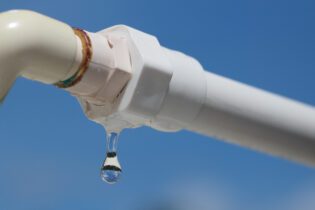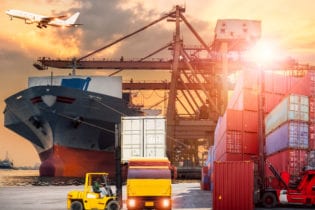iMPAC T100
Safripol’s flagship HDPE PE100 pipe resin, branded as iMPACT100®, provides a single solution to both the water and wastewater transfer markets that conforms to the latest ISO standards. iMPACT100 is a premium material and its high molecular mass grade offers good impact strength, abrasion, chemical and UV resistance. Compliant with the latest PE100 material requirements of ISO/SANS 4427, iMPACT100 is the preferred product for use in large-bore pipes up to 1.2 m in diameter. According to Diliyannis, iMPACT100’s intrinsic properties – including resistance to cracking and longevity – make it suitable for potable water, stormwater and sewerage pipes. “This versatile material is recognised globally for use in all of these functions and is more durable and sustainable than traditional pipe material,” he says.Built on strong foundations
iMPACT100 is the result of Safripol’s strong international partnerships, which encourage the use of the very best pipe technology and operational and safety standards.“Not only have we harnessed the global expertise of our partnerships with LyondellBasell and Qenos to comply with the highest industry standards, but we’ve also cultivated these relationships to allow us to develop a better understanding of the possibilities within the local market, and implement best global practice solutions relatively quickly,” explains Diliyannis.
Safripol’s iMPACT100 was developed in collaboration with Qenos under a licence agreement that allows for informationsharing and gives Safripol’s Sasolburg plant access to future product developments in the HDPE pressure pipe industry. With many years of experience in developing high-performance PE100 pipe grades for water supply and waste management in line with the latest ISO standards, Safripol considered Australian company Qenos as the partner of choice for pipe technology.Meeting the standards
As part of the technical support offered through their exclusive partnership, Qenos’ ISO 17025 accredited laboratory assists with process verification testing, ensuring that Safripol’s iMPACT100 product meets compliance standards. This is followed up with in-process and batch-release testing. Safripol is currently in the process of becoming SANS/ISO 4427 certified, with third-party verification under way by the SABS. “We stay on top of innovative technology through our collaborations and partnerships in the plastics industry, and SABS certification will ensure that iMPACT100 meets the global standard so that we can meet the market’s need for cost-effective, leak-free piping systems,” says Diliyannis. Safripol also works with machine manufacturers to ensure its materials work with their machines and processes to facilitate the creation of fit-for-purpose piping products.The Safripol advantage
“We have deep roots in South Africa, and we pride ourselves on bringing the very best technologies and products to the local market. We go to great lengths to ensure that our products and technology are globally competitive and that we serve the market demand,” says Diliyannis. As a local supplier of raw materials, Safripol offers many advantages to customers, including a quicker supply chain response time, decreased inventory requirements, and easy access to product and technical support, as well as supporting local communities through job creation and economic growth. By ensuring it has the best local technical knowledge, Safripol is working to improve the industry through knowledge-sharing. Diliyannis, together with some of Safripol’s partners, is currently undertaking a global research project to determine the effects of using recycled materials in plastic pipes. “This forms part of our focus to produce long-lasting plastics sustainably. We strive to add value to the environment while using global expertise to improve local understanding. In this way, we work to ensure that Safripol remains Southern Africa’s preferred polymer partner.”





